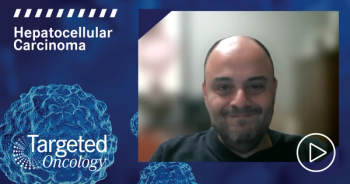
Defining Resectability in HCC
Defining resectability in hepatocellular carcinoma based on burden of liver disease and Child-Pugh score.
Richard S. Finn, MD: The most common way that we assess liver function is with the Child-Pugh score. You will remember from medical school that the Child-Pugh score includes some things that are objective, such as bilirubin, INR [international normalized ratio], and albumin, as well as some things that are more subjective, such as the degree of ascites and hepatic encephalopathy.
The lowest score we can have is 5. Even if you are normal, you get 1 point for each measurement. Then, if one of those is out of range as defined by the Child-Pugh score, you can have a Child-Pugh score of 6 and still be considered Child-Pugh A, which has the best prognosis from liver disease. If you have more abnormalities, then you would move into the Child-Pugh B category, which is heterogeneous. Patients with Child-Pugh C are those who are decompensated, and their survival from liver disease, regardless of their cancer, is poor. You can see that, when we see a patient with advanced liver cancer or any stage liver cancer, we need to take into account their tumor characteristics and Child-Pugh score.
Unresectable liver cancer, as I mentioned, is a large group of patients. They can be unresectable for their liver disease or for anatomic reasons. Often, a patient with intermediate or Barcelona Clinic Liver Cancer stage B disease will get a chemoembolization, but keep in mind that is not a curative approach. Patients can have several chemoembolization procedures over the course of their disease, but those patients will eventually progress to being advanced, where systemic treatment should be used. Those criteria are for patients who develop extrahepatic spread or patients who have chemoembolization and have refractory disease. Their tumor is not responding to TACE [transarterial chemoembolization], or they have new lesions developing quickly after a prior procedure.
Transcript edited for clarity.





















